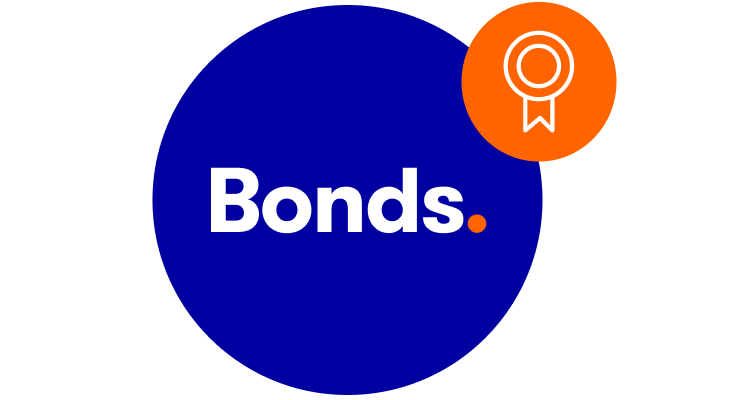Bonds hub
The value of your investments may go down as well as up. You may not get back all the money that you invest. If you are unsure about the suitability of an investment product or service, you should seek advice from an authorised financial advisor.
Capital gains tax on bonds
Most bonds sold in British pounds are not subject to capital gains tax (CGT).
- Bonds issued by the UK government (gilts), are exempt from capital gains tax. The exemption from capital gains tax extends to options and other contracts to buy or sell gilts.
- Corporate bonds bought directly from the issuer and issued in pounds are also not subject to capital gains tax, so long as they are deemed “qualifying corporate bonds” by HMRC.
- Other types of bonds are subject to capital gains tax, unless held inside an ISA or other tax-free wrapper.
If investors make money with a non-exempt bond fund, either actively or passively managed, then they are liable to pay tax on the gains.
The gain is taxed, rather than the amount the investment is worth.
Example
If you bought £10,000 worth of bonds from Tesco, and then sold the bonds for £15,000, then the £5,000 profit would be subject to capital gains tax.
Your capital gains tax-free allowance
Everyone has a tax-free capital gains allowance of £3,000 (Tax year 2025/26).
Once you have reached your allowance, the tax you pay is based on your tax bracket.
- Investors earning under £50,270 on basic rate income tax pay 18% capital gains tax, so long as their capital gains do not push them into a higher income tax bracket. If it does, then CGT is 24%.
- Investors earning more than £50,270 that are on higher rate income tax, or earning more than £125,140 and on the additional rate, pay 24% capital gains tax.
Your income tax-free allowance
For the 2025 to 2026 tax year, everyone has a tax-free personal income allowance of £12,570.
The government also grants a “personal savings allowance” which helps shelter investors from income tax on the interest they earn from savings or investments, including income from bonds.
What is my personal savings allowance
Your personal savings allowance depends on your tax band:
Tax band | Taxable income | Personal savings allowance |
Personal allowance | <£12,571 | £5000 |
Basic rate | £12,571 to £50,270 | £1000 |
Higher rate | £50,271 to £125,140 | £500 |
Additional rate | >£125,140 | £0 |
How do I protect bonds against tax?
The simplest thing to do is to hold bonds or bond funds inside an ISA.
Everyone has a £20,000 annual allowance that can be used to protect against income and capital gains tax.
SIPPs are also a tax-efficient vehicle, but pots are subject to income tax, and other tax rules, when the investor retires and accesses their pension.
How bonds are taxed in ISAs and SIPPs
Tax for bonds in ISAs
Bonds held in ISAs are not subject to capital gains tax or income tax. Investors can put up to £20,000 a year into an ISA. Income can be taken out and spent, or reinvested inside the ISA wrapper.
Tax for bonds in SIPPs
The tax rules for self-invested personal pensions (SIPPs) are different. Contributions made through PAYE are tax-free and are made before tax is deducted.
In contrast, payments made by you directly are net of tax and will be topped up by HMRC.
Example
A higher rate taxpayer who makes a £600 contribution to their SIPP will have that contribution topped up to £800 by HMRC automatically. They will also receive a further £200 rebate when they complete their tax return.
SIPPs and tax continued
Your pension money only becomes taxable when you make withdrawals. Your pension will be taxed when you start to withdraw an income at income tax levels from it after age 55 today, or 57 from 2028.
There is also a 25% tax-free lump sum allowance if you are making large withdrawals. It may also be possible to take smaller sums from your pension that combine a tax-free element with taxable income.
Any capital gains or income, for example, from bonds or dividends, that is kept inside the SIPP is not subject to tax. Your pension money only becomes taxable when you make withdrawals.
From April 2024, there are new limits on the amount you can take as tax-free lump sums. The standard Lump Sum Allowance (LSA) is £268,275 and the Lump Sum and Death Benefit Allowance (LSDBA)is £1,073,100. Withdrawals above these thresholds may be subject to income tax. Your allowance may be different if you have already taken pension benefits or hold lifetime allowance protection.
Read our guide:Buying bonds in a SIPP
How are bond funds taxed at the end of the year?
If held outside an ISA or SIPP, income and capital gains from bond funds must be reported to HMRC via annual tax returns or using the Capital Gains Tax Service on the HMRC website.
If you use the reporting service, you will need to work out how much tax you owe before you report the gain.
Are investment bonds and gilts subject to inheritance tax?
Inheritance tax and SIPPs
Money invested in bonds in a SIPP is free of inheritance tax, and some withdrawals are subject to income tax when it is passed on to the beneficiaries.
- If the person who died was over 75, the beneficiaries will need to pay income tax on any withdrawals from the pension.
- If the person dies before age 75, then beneficiaries do not pay income tax on pension withdrawals.
Inheritance tax and ISAs
Bonds held within an ISA are subject to inheritance tax.
The surviving spouse will get a one-off extra ISA allowance called an Additional Permitted Subscription (APS). This allowance or APS matches the value of their spouse’s ISAs which means they can inherit their ISAs and treat them as if they were their own.
Bonds and bond funds held outside an ISA or SIPP are still subject to inheritance tax.
The standard inheritance tax rate is 40%. It is only charged on the part of an estate that is above the £325,000 threshold, although there are other allowances, including a transferrable nil rate band for widows or widowers and the main residence nil rate band (also transferrable for spouses), which may increase the threshold further and decrease the amount of inheritance tax due.
Bonds tax FAQs
How to buy bonds
You can trade a number of bonds and gilts via your online ii account. For any that aren't available online, you can deal over the phone by calling us on 0345 607 6001.

